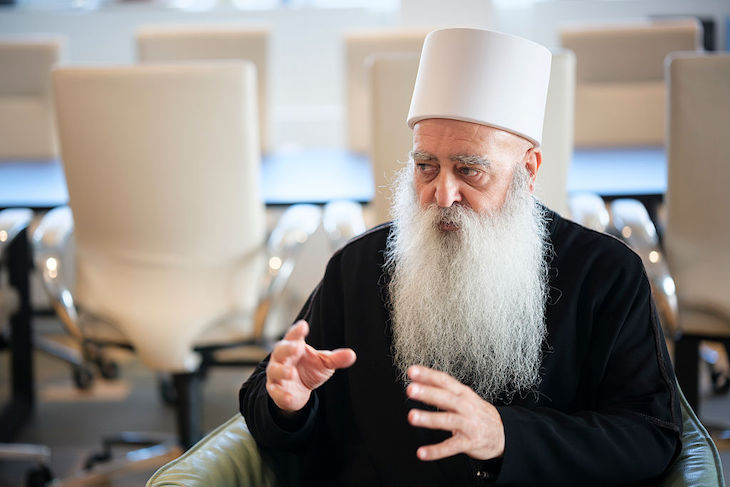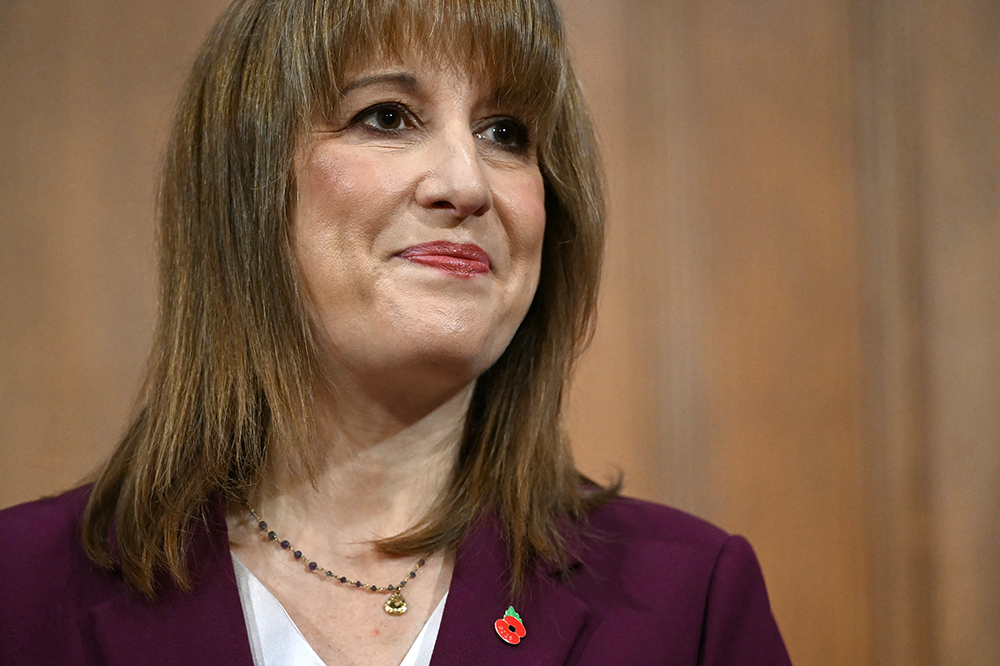It’s not even 10am, but already the Galilee sun is prickling the back of my neck. I’m standing outside a war room set up in the community centre of the village of Julis, watching a delegation of 200 Druze men arrive.
One by one, they make their way up the steep path – most dressed in their trademark black robes, baggy trousers, and white hats. They’ve come from across northern Israel to plead for their people on the other side of the border, where a quiet massacre has been unfolding in southern Syria.
‘Tomorrow it could be Europe or the US. These extremists will get stronger, and they will murder each and every one of us.’
Since the overthrow of Bashar al-Assad last year by Islamist-led rebels, Syria has been consumed by sectarian violence. In the southern province of Sweida, where the Druze form a majority, chaos reigns. The community insists it is facing ethnic cleansing.
I am here to interview the Druze spiritual leader Sheikh Muwaffaq Tarif – the only British journalist to do so. But that has been delayed by a few hours, on account of a far more important meeting that the sheikh has – with the Israeli prime minister, Benjamin ‘Bibi’ Netanyahu.
A white tent has been pitched outside the community centre, fiercely guarded by Shin Bet, the Israeli security agency. I try not to look too conspicuous, as I look around for Bibi, but it’s obvious he has been escorted through another entrance, as the Druze representatives head in past me. It’s exclusively men, with only two women present.
Sheikh Tarif implored the prime minister to do something about the worsening humanitarian crisis in Sweida. He has also written to UK prime minister Keir Starmer, US president Donald Trump, French president Emmanuel Macron, and UN Secretary-General António Guterres, urging the creation of a humanitarian corridor.
“Our women are selling their gold to buy food,” the Sheikh tells me later. “We’ll let [Syrian authorities] inspect the trucks. Just get the help in. We’re calling on the world to step in, or the situation will be catastrophic.”
In a sign of how widespread the rapes have become, the community is distributing morning-after pills to women and girls, accompanied by a written fatwa (religious ruling) from the Sheikh permitting their use.
The Sheikh is a man of modest height, but his flowing black robe, long white beard, and white vertiginous hat lend him a quiet authority. We speak, via a Hebrew interpreter, over coffee and date-filled biscuits after the prime minister has left. The war room is decorated with plush carpets and chandeliers. There is a large banner at the back of the room which states: Druze Lives Matter.
This campaign began in July, after a Druze merchant was abducted on the road to Damascus, an event that ignited fierce clashes between Druze militias and Bedouin fighters. Interim president Ahmed al-Sharaa dispatched troops, but instead of restoring calm, violence escalated.
Videos show regime-aligned fighters humiliating Druze elders by shaving their moustaches – a sacred symbol in their religious identity. Other footage appears to show government forces executing civilians in homes, schools, and hospitals.
Amnesty International has verified some of these atrocities, including mass killings and disappearances. It is also investigating claims that Druze armed groups have carried out retaliatory abductions. The Syrian Interior Ministry, surprisingly, welcomed Amnesty’s findings “with positivity and interest”.
The Druze are a small religious minority with deep Levantine roots: around 700,000 live in Syria, 250,000 in Lebanon, and 150,000 in Israel. In Israel, they are often held up as model citizens. Unlike other Arab Israelis, Druze men are subject to mandatory military service, with many going on to serve as elite officers.
And yet, some feel their loyalty has gone unrewarded. In 2018, Israel passed the controversial Nation-State Law, which defined the country exclusively as the nation of the Jewish people, effectively reducing all non-Jews to second-class citizens. Druze citizens protested with placards accusing the state of betrayal. Now, they want to see their loyalty recognised, in actions as well as words.
Israel responded to the crisis in Sweida with airstrikes on 15 July, saying it was acting to protect the Druze. Others have accused Israel of exploiting sectarian tensions for strategic gain.
Meanwhile, in northern Israel, dozens of Druze volunteers are working around the clock to monitor what is happening in Syria. The numbers are staggering: more than 230,000 people from 40 villages displaced, and nearly 1,500 killed – most of them Druze.
Eman Safady, a communications officer for the Sheikh, is unable to sleep at night, after seeing footage of the atrocities by government forces. “They filmed it because they’re proud of themselves,” she says. “They feel like heroes. I get goosebumps just thinking about it.”
The Sheikh claims that 121 women and eight children have been taken captive. He recounts one particularly horrific case: a five-year-old girl raped and murdered in front of her parents. “They’re animals! It’s cutting us apart in here,” he touches his chest, his pale blue eyes blazing with anger.
So why, then, has there been such little global attention? Dr Osama Sheikh, an anaesthesiologist at Galilee Medical Center, offers a bitter answer. “It’s not sexy enough for the media. I’m offended by the hypocrisy of the world. If they’re saying there’s a genocide in Gaza, then what about what’s happening to the Druze in Syria? Their only crime is being born Druze.”
He recounts one particularly horrific case: a five-year-old girl raped and murdered in front of her parents
Dr Sheikh says preventable deaths are now routine. “We lost a one-year-old because there was no baby formula. Diabetics are dying without insulin. I’ve been working until 4am most nights trying to get aid in.”
Still, the fear is that things will get worse. “Today it’s us,” says Tamir, the Sheikh’s assistant. “Tomorrow it could be Europe or the US. These extremists will get stronger, and they will murder each and every one of us.”
Meanwhile, Syrian leader Ahmed al-Sharaa is trying to reinvent himself as a statesman. A former jihadist with links to al-Qaeda, he’s set to speak at the UN General Assembly later this month. His regime hopes the appearance will help ease Western sanctions. It’s unlikely the massacres in Sweida will feature in his speech.
At the end of our conversation, the Sheikh grows quiet. Then he looks up.
“This is not a war between countries, it’s between ideologies. It’s about good and evil. We cherish life. Others cherish death. We never started this war. But if we must die defending our land, we’ll do it with our heads held high.”







Comments